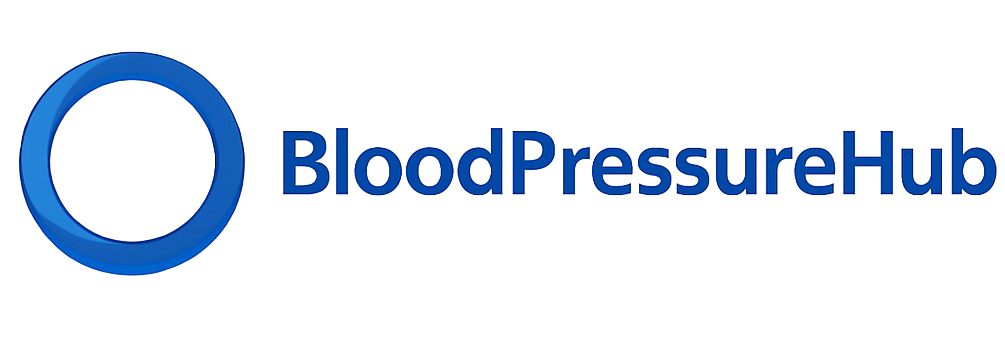Eating for Your Heart: The Role of Diet in Managing High Blood Pressure
The BPHub Team
2025-03-24

Hypertension, commonly known as high blood pressure, is a prevalent condition that poses significant risks to cardiovascular health. With its potential to lead to severe complications such as heart disease, stroke, and kidney damage, managing hypertension is crucial for maintaining overall health. One of the most effective strategies for controlling blood pressure is through dietary modifications. In this blog post, we will explore the role of diet in managing hypertension, highlighting key foods and dietary patterns that can help keep your heart healthy.
Understanding Hypertension
Hypertension is a condition characterized by consistently elevated blood pressure levels. Blood pressure is the force exerted by circulating blood against the walls of the arteries. When this pressure remains high over time, it can lead to damage of the blood vessels and organs, increasing the risk of cardiovascular diseases and other health issues. Longevity is profoundly affected by a disease that has been present for decades.
The Impact of Hypertension on Health
High blood pressure is often referred to as a "silent killer" because it typically presents no symptoms until significant damage has occurred. According to the National Institute of Diabetes and Digestive and Kidney Diseases (NIDDK), hypertension is a leading cause of chronic kidney disease, as it can damage the blood vessels in the kidneys, impairing their ability to filter waste from the blood effectively (NIDDK, 2023). This results in high blood pressure being a leading cause of people needing dialysis.
Moreover, hypertension is a major risk factor for heart disease and stroke. The American Heart Association emphasizes the importance of managing blood pressure to reduce the risk of heart attack, stroke, and other cardiovascular threats (American Heart Association, 2024).
The Role of Diet in Managing Hypertension
Diet plays a pivotal role in the management of hypertension. A heart-healthy diet can help lower blood pressure, reduce the risk of cardiovascular diseases, and improve overall health. Here are some key dietary strategies for managing hypertension:
1. Embrace the DASH Diet
The Dietary Approaches to Stop Hypertension (DASH) diet is specifically designed to help lower blood pressure. It emphasizes the consumption of fruits, vegetables, whole grains, lean proteins, and low-fat dairy products. The DASH diet is rich in nutrients such as potassium, calcium, and magnesium, which are known to help regulate blood pressure.
- Fruits and Vegetables: Aim for at least 4-5 servings of fruits and 4-5 servings of vegetables per day. These foods are high in fiber, vitamins, and minerals that support heart health.
- Whole Grains: Incorporate whole grains like brown rice, quinoa, and whole-wheat bread into your meals. These are excellent sources of fiber and nutrients that contribute to heart health (Mayo Clinic, 2024).
- Lean Proteins: Opt for lean sources of protein such as poultry, fish, beans, and nuts. These provide essential nutrients without the added saturated fats found in red meats.
2. Reduce Sodium Intake
Excessive sodium intake is closely linked to high blood pressure. The American Heart Association recommends limiting sodium intake to no more than 2,300 milligrams per day, with an ideal limit of 1,500 milligrams for most adults, especially those with hypertension (American Heart Association, 2024).
- Read Labels: Pay attention to food labels and choose low-sodium or no-salt-added options.
- Cook at Home: Preparing meals at home allows you to control the amount of salt used in your dishes.
- Flavor with Herbs and Spices: Use herbs and spices like garlic, basil, and oregano to add flavor to your meals without relying on salt.
3. Increase Potassium Intake
Potassium is a mineral that helps balance sodium levels in the body and relaxes blood vessel walls, which can lower blood pressure. Foods rich in potassium include bananas, oranges, potatoes, and spinach.
- Bananas: A convenient and portable source of potassium, perfect for a quick snack.
- Leafy Greens: Spinach and kale are excellent sources of potassium and can be easily added to salads or smoothies.
- Sweet Potatoes: These are not only high in potassium but also provide fiber and vitamins.
4. Limit Alcohol Consumption
Excessive alcohol consumption can raise blood pressure and contribute to weight gain, both of which are risk factors for hypertension. It is recommended to limit alcohol intake to moderate levels—up to one drink per day for women and two drinks per day for men.

5. Maintain a Healthy Weight
Being overweight or obese increases the risk of developing hypertension. The NIDDK highlights the importance of weight management in reducing the risk of high blood pressure and related health problems (NIDDK, 2023).
- Regular Exercise: Engage in at least 150 minutes of moderate-intensity aerobic exercise per week, such as walking, cycling, or swimming.
- Balanced Diet: Focus on nutrient-dense foods that provide essential vitamins and minerals without excessive calories.
6. Avoid Processed and Sugary Foods
Processed foods and those high in added sugars can contribute to weight gain and increased blood pressure. Limit consumption of sugary beverages, snacks, and desserts.
- Choose Whole Foods: Opt for whole, unprocessed foods whenever possible.
- Hydrate with Water: Replace sugary drinks with water or herbal teas.
The Benefits of a Heart-Healthy Diet
Adopting a heart-healthy diet not only helps manage hypertension but also offers numerous other health benefits:
- Reduced Risk of Cardiovascular Diseases: A diet rich in fruits, vegetables, and whole grains can lower the risk of heart disease and stroke.
- Improved Kidney Function: By managing blood pressure, you can protect your kidneys from damage and maintain their function (NIDDK, 2023).
- Better Weight Management: A balanced diet supports healthy weight loss and maintenance, reducing the risk of obesity-related health issues.
Conclusion
Managing hypertension through dietary changes is a powerful and effective strategy for promoting heart health. By embracing a heart-healthy diet rich in fruits, vegetables, whole grains, and lean proteins, while reducing sodium and alcohol intake, you can significantly lower your blood pressure and reduce the risk of cardiovascular diseases. Remember, while dietary changes can have a profound impact on your health, it is essential to consult with healthcare professionals for personalized medical advice and guidance.
Call to Action
Start making heart-healthy dietary choices today and take control of your blood pressure. For more information on managing hypertension and adopting a heart-healthy lifestyle, visit reputable sources such as the American Heart Association and the Mayo Clinic.
References
- National Institute of Diabetes and Digestive and Kidney Diseases (NIDDK). (2023). High Blood Pressure & Kidney Disease. Retrieved from https://www.niddk.nih.gov/health-information/kidney-disease/high-blood-pressure
- American Heart Association. (2024). Managing Blood Pressure with a Heart-Healthy Diet. Retrieved from https://www.heart.org/en/health-topics/high-blood-pressure/changes-you-can-make-to-manage-high-blood-pressure/managing-blood-pressure-with-a-heart-healthy-diet
- Mayo Clinic. (2024). Heart-healthy diet: 8 steps to prevent heart disease. Retrieved from https://www.mayoclinic.org/diseases-conditions/heart-disease/in-depth/heart-healthy-diet/art-20047702
Disclaimer: This blog post is for informational purposes only and should not be considered medical advice. Please consult with a healthcare professional for personalized recommendations.
This blog was created by the BPMaestro Team under the supervision of Santiago Miriuka, MD PhD.
